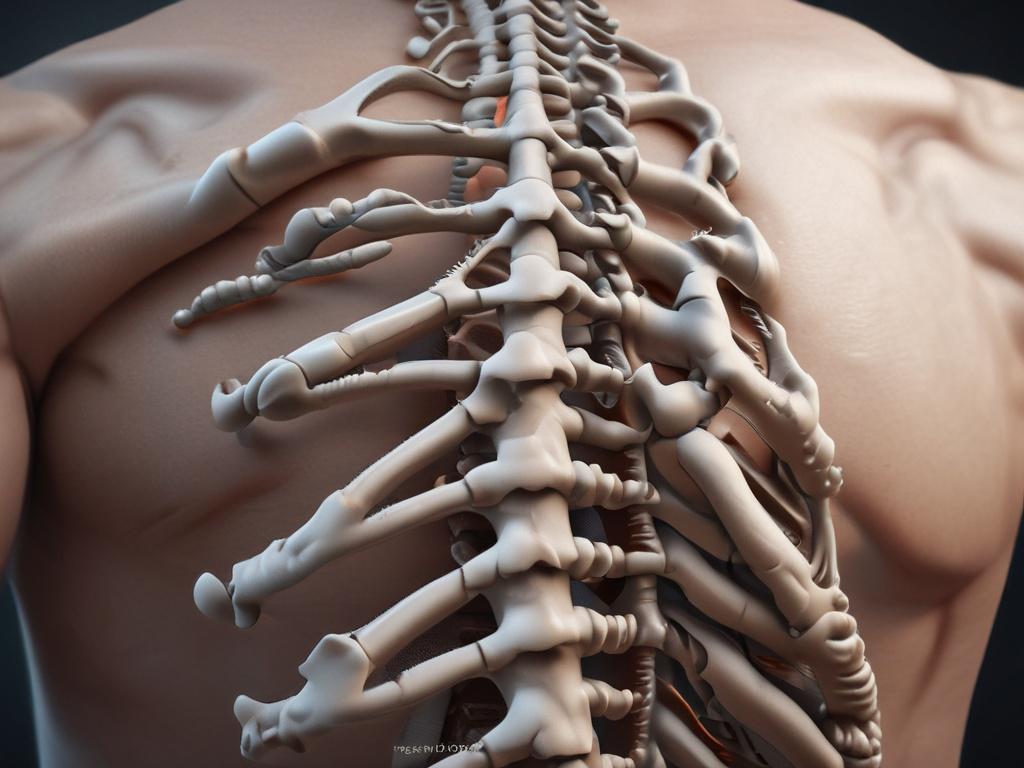
Many people attribute food reactions solely to digestive issues, but the truth is far more complex. While your stomach plays a crucial role in processing what you eat, your nervous system significantly influences how your body responds to these foods. Some food reactions aren’t about digestion—your spine and nerves could be part of the issue.
This blog post will dive into the often-overlooked interplay between your nervous system and food reactions. We’ll explore how spinal health can impact digestive responses, revealing that the root of your discomfort may lie in your spine rather than your stomach. Additionally, we’ll help you identify symptoms that may indicate a link between food sensitivities and nerve issues, empowering you to take a more holistic approach to your health.
Food reactions often trigger discomfort or distress, leading many to suspect digestive issues immediately. However, research shows that these reactions can sometimes stem from the nervous system. Your body’s nervous system plays a crucial role in how it responds to food, influencing everything from digestion to immune responses. When the nervous system is under stress or misaligned, it can send mixed signals that affect how your body processes food. This miscommunication may lead to symptoms such as bloating, inflammation, or fatigue, even if your stomach itself is functioning correctly.
Additionally, the mind-gut connection cannot be overlooked. The gut and brain communicate constantly through the vagus nerve, which runs from the brainstem to the abdomen. This communication line means that emotional and psychological states can impact digestive health. Stress, anxiety, and other emotional disturbances can disrupt the balance of gut microbiota or alter digestive enzymes, exacerbating the feelings of discomfort after eating.
The spine plays a crucial role in maintaining overall health and functionality, including digestive processes. When the spine is misaligned or experiences tension, it can impact the spinal nerves that communicate with various organs, including those in the digestive system. The nervous system regulates digestion through intricate pathways. Any interference in these pathways—such as from a subluxation or muscle tension—can lead to disruptions in digestive function, causing bloating, discomfort, or even food intolerances that seem unrelated to what you eat.
Further, a healthy spine supports the autonomic nervous system, which has two primary divisions: the sympathetic and parasympathetic. The sympathetic nervous system prepares the body for stress and can inhibit digestive function, while the parasympathetic system promotes rest and digestion. If spinal misalignments are present, they may result in an overactive sympathetic response, effectively shutting down your body's ability to properly digest food. Addressing spinal health through chiropractic care or other therapeutic methods can enhance nerve function, leading to improved digestive responses and overall well-being.
Many people assume that food sensitivities manifest solely through gastrointestinal symptoms like bloating or discomfort. However, symptoms can also include neurological effects such as headaches, fatigue, or even mood changes. These reactions may stem from an underlying issue in the nervous system that affects how the body processes certain foods. When your nervous system is compromised, it can misinterpret the signals coming from the digestive tract, leading to a disproportionate reaction to specific ingredients or meals. Increasing awareness of this connection is pivotal for those who experience unexplained food reactions.
To accurately identify whether food sensitivities stem from nerve issues, you should pay close attention to your body’s responses after eating. Are you experiencing tingling sensations or sudden fatigue alongside your digestive complaints? These signals could indicate that your nervous system is involved. Consulting with a healthcare provider specializing in both neurology and nutrition can help you map out the root causes of your symptoms. This holistic approach allows you to address not only your food sensitivities but also any underlying nervous system dysfunction that may be exacerbating your reactions.
Reach out to our team at Comfort Chiropractic and Acupuncture to book a chiropractic or acupuncture appointment, or to explore our services for functional medicine.